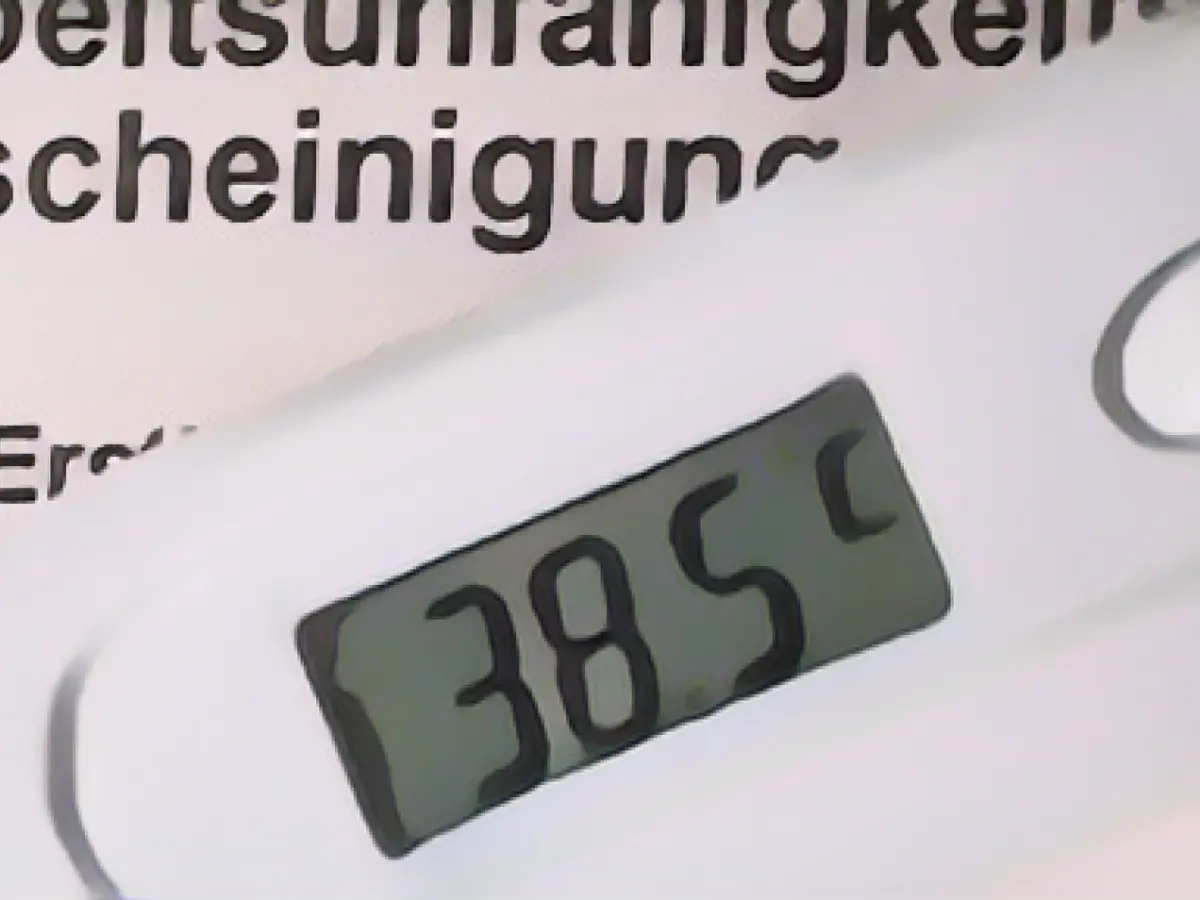Train conductors across Germany are gearing up for a two-day standoff starting Thursday evening, with the drivers' union GDL following through on their warnings against Deutsche Bahn. From 6 PM on Thursday, freight transport operations will come to a halt, and passenger travel will also be impacted after 10 PM. This nationwide showdown will wrap up at 10 PM on Friday.
GDL's patience with negotiations between Deutsche Bahn and the train company Transdev has worn thin. Despite agreeing to discuss cutting working hours, Deutsche Bahn's recent offer fell short of GDL's expectations during the Tuesday talks, prompting the union to call for a strike.
Reports of reconciliation seemed overly optimistic
Encouraging signals arose from discussions with Transdev and Netinera – companies overseeing regional rail services in various federal states. According to reports, Transdev expressed a willingness to negotiate reduced weekly working hours, and talks were scheduled for Tuesday. Progress was reportedly made on downtime issues at Netinera. A definite resolution could have been reached as soon as the following week.
However, the positive vibe vanished, as communication broke down, and negotiations fell apart.
The union's push for a wage hike
At the heart of the potential strike is a wage dispute between Deutsche Bahn and the German Railway and Transport Union (EVG), which represents about 192,000 employees. The EVG demanded a 7.6% pay increase, but Deutsche Bahn only offered up to 6.6%.
A swift resolution to the conflict
In an unexpected turn of events, Deutsche Bahn and the EVG reached a collective agreement just three weeks into negotiations, averting the threat of strikes. The new deal includes a 6.5% pay increase, with stages of 2% in July 2025, 2.5% in July 2026, and an additional 2% in December 2027. Shift workers will receive an extra 2.6% wage increase annually starting in December 2026, with the option to convert some of this increase into additional time off starting in 2027. All employees will receive a one-time payment of EUR200 in April 2025, and job security has been extended until December 31, 2027.
The agreement also includes a special restructuring clause for DB Cargo that allows for deviations from standard collective agreements if necessary to support the restructuring plan of the troubled freight division. However, this has raised concerns among some workers about potential inconsistencies in working conditions. The collective agreement lasts 33 months, longer than typical contracts, which has sparked concerns within the EVG union. Negotiations were conducted in Berlin, with progress being made following a lengthy second round of talks. Both sides aimed to secure a deal before potential political changes could impact railway funding and company structure.
Enrichment Data (*Incorporated throughout the revised article*)
Deutsche Bahn and the EVG have reached a collective agreement, averting potential train strikes in Germany. Here are the key details and latest developments:
- Agreement Reached:
- Deutsche Bahn and the EVG have reached a collective agreement, avoiding strikes. The deal includes a 6.5% pay increase for employees, spread across three stages: 2% in July 2025, 2.5% in July 2026, and an additional 2% in December 2027[1][5].
- Shift Worker Benefits:
- Shift workers will receive an extra 2.6% wage increase annually starting in December 2026, with the option to convert part of this increase into additional time off starting in 2027[1][5].
- One-Time Payment:
- All employees will receive a one-time payment of EUR200 in April 2025[1][5].
- Job Security:
- Job security has been extended until December 31, 2027, ensuring no layoffs during this period[5].
- Restructuring Clause for DB Cargo:
- A special restructuring clause for DB Cargo allows for deviations from standard collective agreements if necessary to support the restructuring plan of the struggling freight division. This has raised concerns among some workers about potential inconsistencies in working conditions[5].
- Contract Duration:
- The collective agreement spans 33 months, which is longer than usual, running until the end of 2027. This long-term contract term has sparked concerns within the EVG union, as employees will not have another opportunity to negotiate new wage increases until 2028, unless unexpected economic conditions force an early renegotiation[1][5].
- Negotiation Process:
- The negotiations were conducted in Berlin, with significant progress made following a lengthy second round of talks. The EVG had initially sought a wage increase of 7.6%, while Deutsche Bahn proposed a total increase of 7.9%, including allowances for shift workers over a slightly shorter period[4][5].
- Avoidance of Strikes:
- The agreement was reached relatively quickly, largely due to the upcoming German federal election on February 23, 2025. Both sides aimed to secure a deal before potential political changes could impact railway funding and company structure. The last major Deutsche Bahn labor dispute resulted in widespread service disruptions, motivating both sides to avoid strikes[5].
The agreement addresses the needs of employees while considering the financial realities of Deutsche Bahn, ensuring a balanced deal during a challenging period for the company[5].








